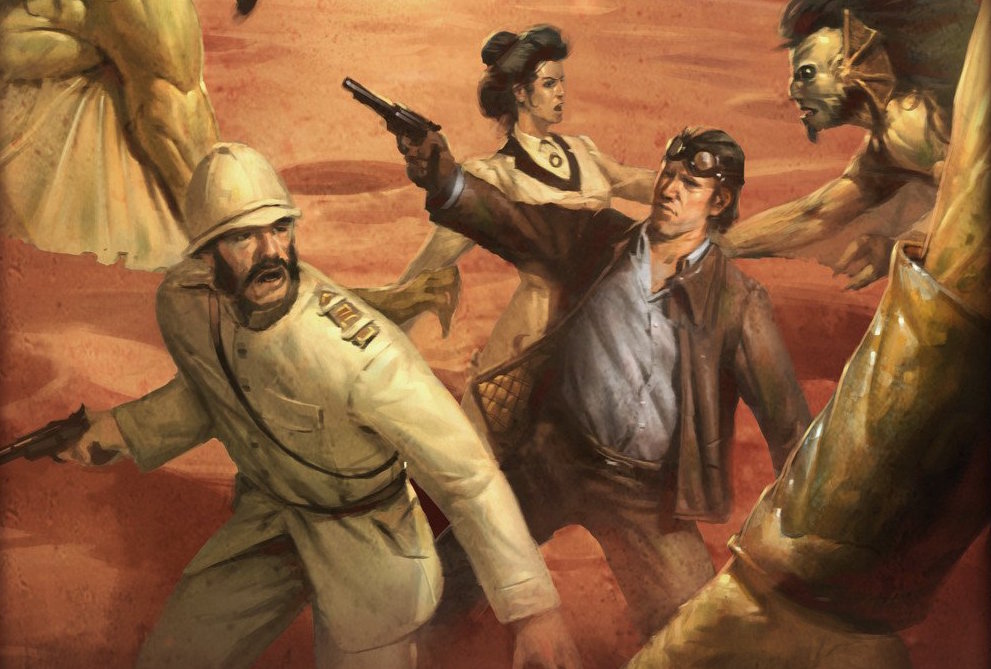I recently ran some sessions of two RPGs that strive to emulate related genres of fiction. Though they don’t seem so at first blush, under the hood, the two systems almost identical. Yet they play very differently. Let’s look at why.

Space: 1889 is a game about an alternate late 19th century where marvelous technologies have allowed European colonial powers to spread their influence to the jungles of Venus and the canals of Mars. It emulates the Victorian science fiction and adventure novels of Jules Verne, Arthur Conan Doyle, H.G. Wells, and the like. The new version by Clockwork Publishing has a central mechanic of rolling a number (Attribute + Skill) of dice (any dice with an even number of sides will do). Evens are successes. Odds are not. Count your successes and compare that number to a DC. Higher numbers of successes can overcome harder DCs.

7th Sea is a game of swashbuckling adventure set in a world akin to our own late 16th century, but with some low-level magic and more pirates. It emulates the adventure novels of the mid-19th century set in the 16th century (think The Three Musketeers and Treasure Island). The new second edition’s central dice mechanic is rolling a number (Trait + Skill) of d10s. You pair your results into sets of 10 that function as successes. For example, rolling five dice and getting 1, 3, 5, 6, 7 would be two successes (7&3, 5&6, with a 1 left over). For simple tasks, it’s effectively comparing your number of successes to a DC, but more complicated scenes (like combats and chases) involve slowly spending down your number of successes and bidding against your adversary by negating their spent successes with yours.
At first glance, these look quite different, but the dice mechanic is almost identical. In both cases, you’re rolling a fistful of dice, and you’re probably going to get a number of successes equal to about half the size of your dice pool. From a raw mathematical perspective, there’s almost no difference between the systems.
But nonetheless, they play very differently! Part of it is tactile. 7th Sea almost forces you to move your dice around on the table, putting components of your successes beside one another. This slows down play, but it also lets you touch your dice more, which is fun. 7th Sea introduces a success economy, forcing you to decide how you want to spend them. The spending rules are really simple, but you actually have to stop and decide how you want to allocate your finite successes. 7th Sea also has ‘leftover’ dice (dice that didn’t make it into any of the sets of 10), which the GM can choose to buy for later use.
What’s wild is that neither system is truly ‘crunchier’ than the other. Both rules sections are about equally long (26 pages for Space: 1889, and 24 pages for 7th Sea). Both character sheets have about as much stuff on them when filled out.
The fundamental difference between the two is that the rules system for 7th Sea is more intrusive. It calls attention to itself. It is possible – indeed, easy – to play a session of Space: 1889 and never think about the rules qua rules. The opposite is true of 7th Sea. Whenever dice are rolled, they cannot be forgotten, but instead manipulated into sets, which must carefully allocated towards distinct, defined purposes. Where Space: 1889 is elegant, 7th Sea is sophisticated. The Space: 1889 rules get out of the way, but the 7th Sea rules are the way.
I can think of no better demonstration that small changes in rules can have a dramatic impact on the user’s experience.






